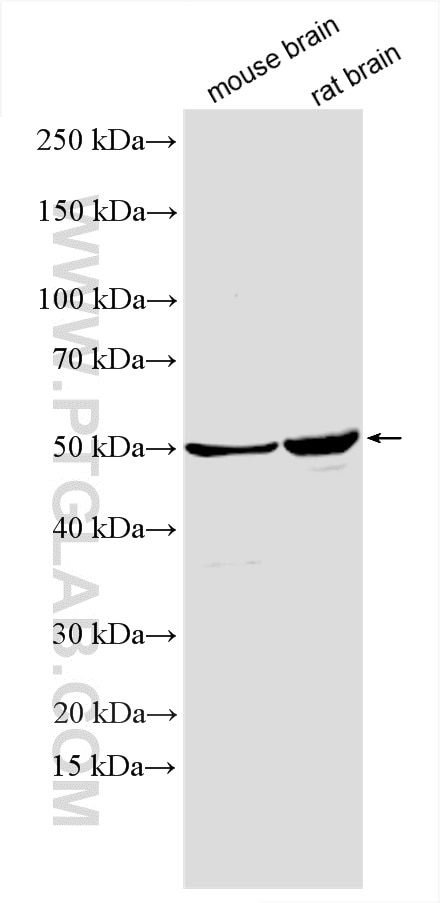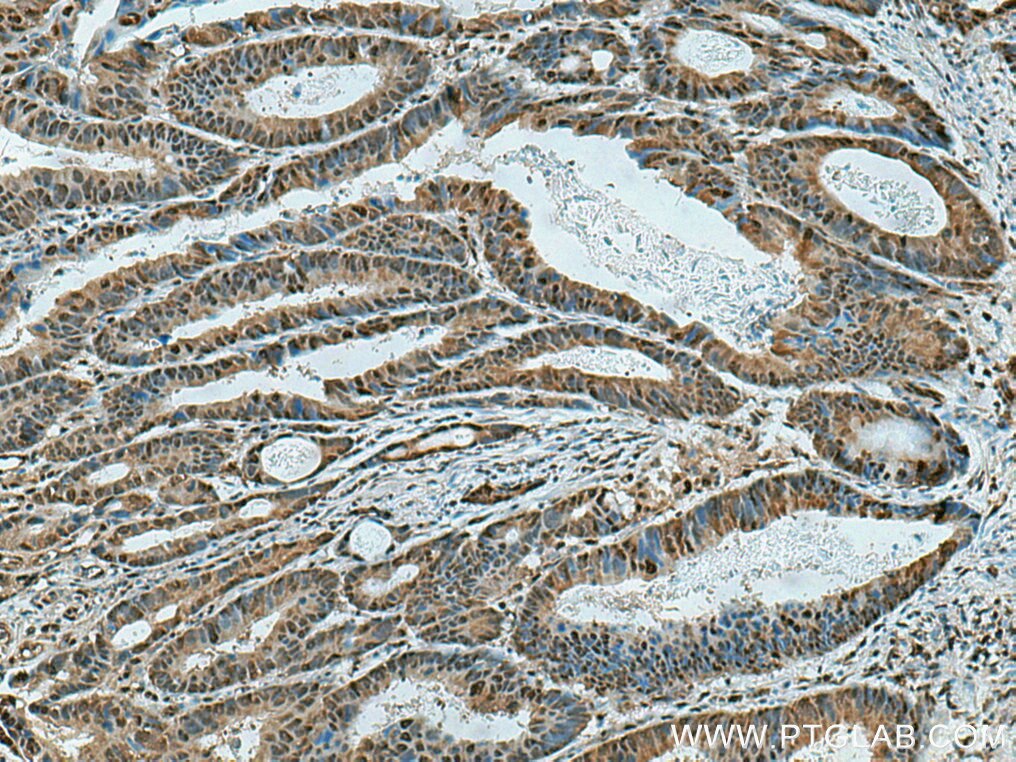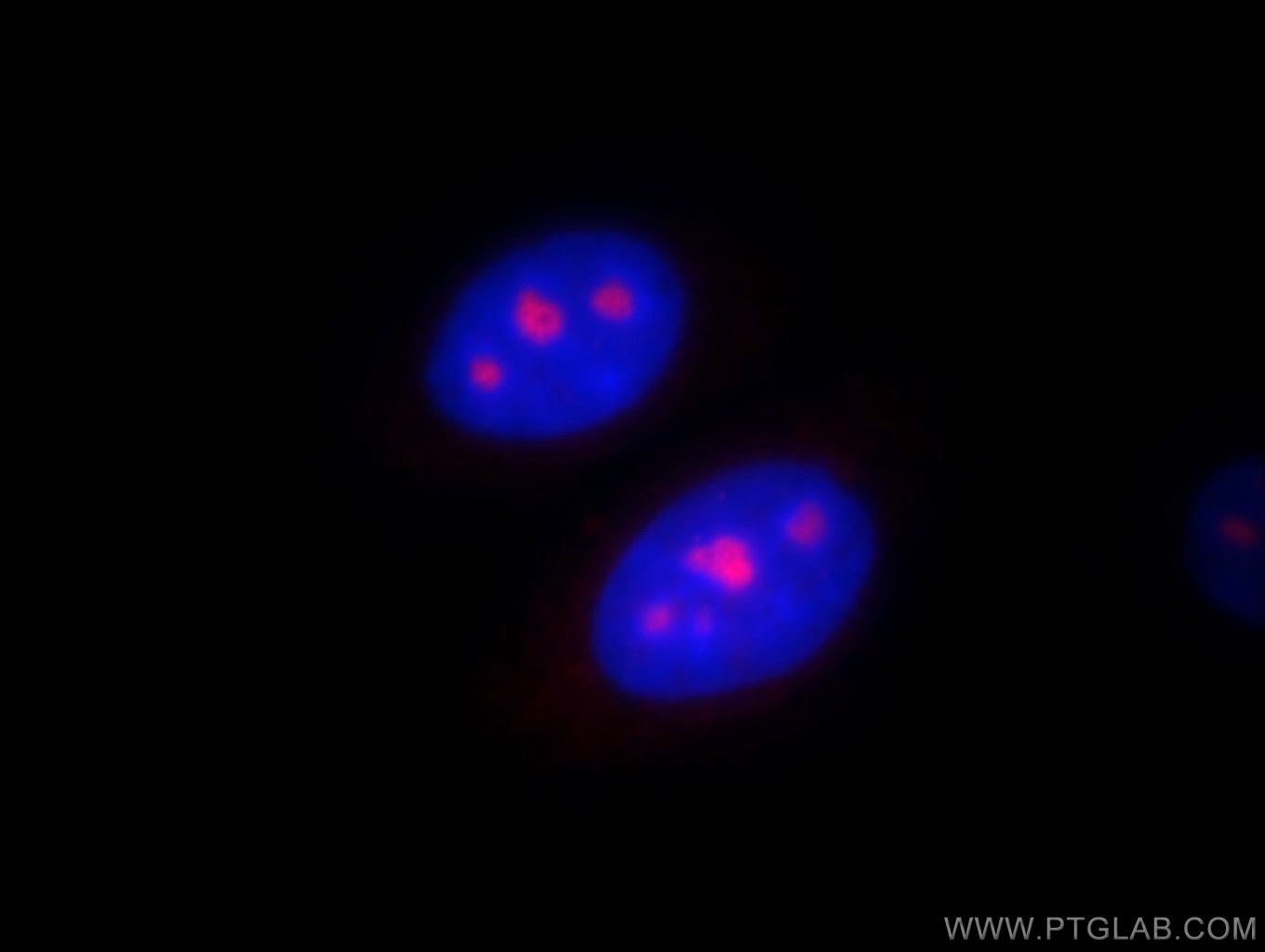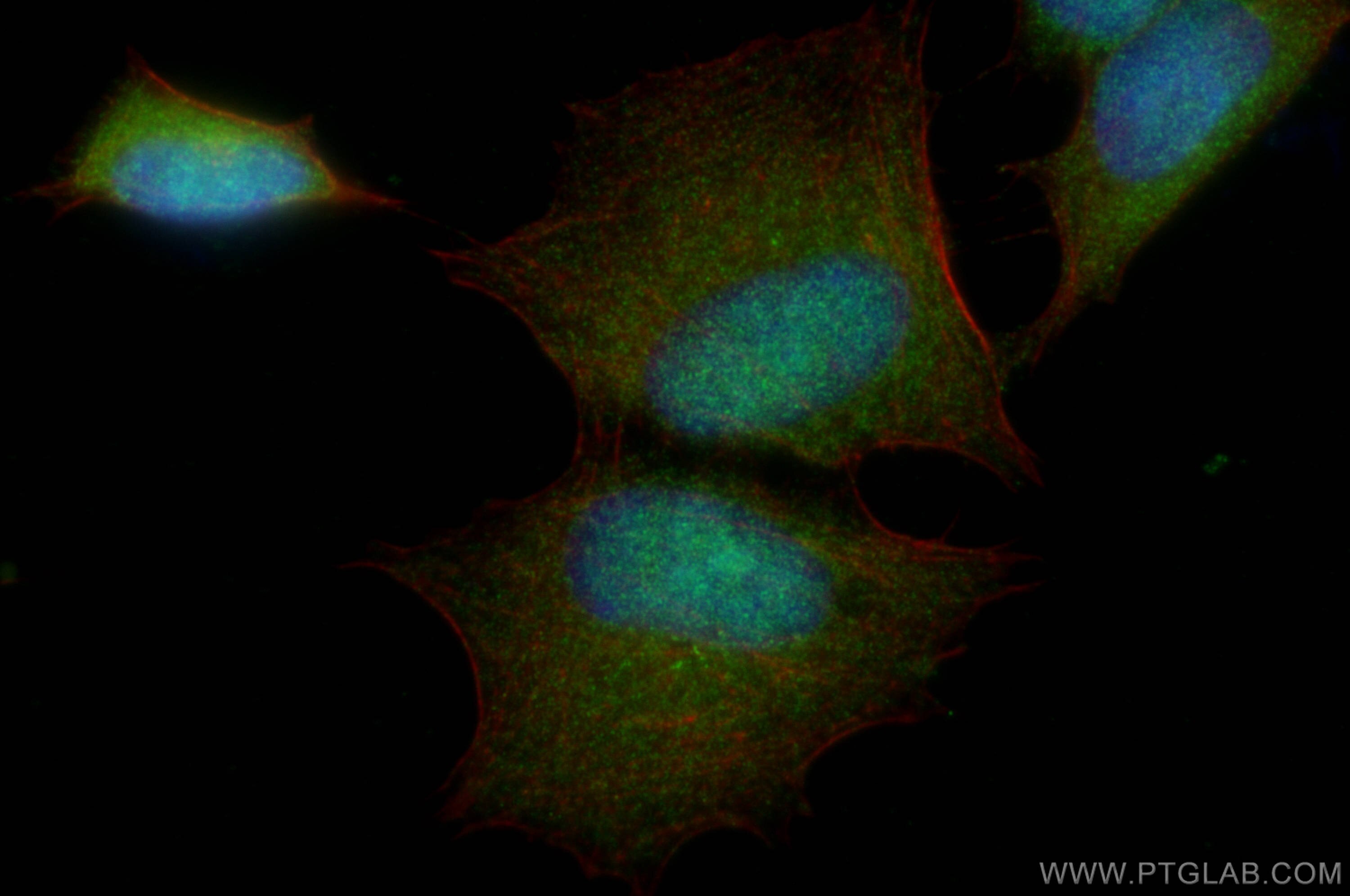Anticorps Polyclonal de lapin anti-PSMC4
PSMC4 Polyclonal Antibody for WB, IF, IHC, ELISA
Hôte / Isotype
Lapin / IgG
Réactivité testée
Humain, rat, souris
Applications
WB, IHC, IF/ICC, ELISA
Conjugaison
Non conjugué
N° de cat : 11389-1-AP
Synonymes
Galerie de données de validation
Applications testées
| Résultats positifs en WB | tissu cérébral de souris, tissu cérébral de rat |
| Résultats positifs en IHC | tissu de cancer du côlon humain, il est suggéré de démasquer l'antigène avec un tampon de TE buffer pH 9.0; (*) À défaut, 'le démasquage de l'antigène peut être 'effectué avec un tampon citrate pH 6,0. |
| Résultats positifs en IF/ICC | cellules HepG2, cellules SH-SY5Y |
Dilution recommandée
| Application | Dilution |
|---|---|
| Western Blot (WB) | WB : 1:500-1:2000 |
| Immunohistochimie (IHC) | IHC : 1:50-1:500 |
| Immunofluorescence (IF)/ICC | IF/ICC : 1:10-1:100 |
| It is recommended that this reagent should be titrated in each testing system to obtain optimal results. | |
| Sample-dependent, check data in validation data gallery | |
Applications publiées
| WB | See 3 publications below |
| IHC | See 1 publications below |
| IF | See 1 publications below |
Informations sur le produit
11389-1-AP cible PSMC4 dans les applications de WB, IHC, IF/ICC, ELISA et montre une réactivité avec des échantillons Humain, rat, souris
| Réactivité | Humain, rat, souris |
| Réactivité citée | rat, Humain, souris |
| Hôte / Isotype | Lapin / IgG |
| Clonalité | Polyclonal |
| Type | Anticorps |
| Immunogène | PSMC4 Protéine recombinante Ag1943 |
| Nom complet | proteasome (prosome, macropain) 26S subunit, ATPase, 4 |
| Masse moléculaire calculée | 418 aa, 47 kDa |
| Poids moléculaire observé | 43-50 kDa |
| Numéro d’acquisition GenBank | BC014488 |
| Symbole du gène | PSMC4 |
| Identification du gène (NCBI) | 5704 |
| Conjugaison | Non conjugué |
| Forme | Liquide |
| Méthode de purification | Purification par affinité contre l'antigène |
| Tampon de stockage | PBS avec azoture de sodium à 0,02 % et glycérol à 50 % pH 7,3 |
| Conditions de stockage | Stocker à -20°C. Stable pendant un an après l'expédition. L'aliquotage n'est pas nécessaire pour le stockage à -20oC Les 20ul contiennent 0,1% de BSA. |
Informations générales
PSMC4(proteasome (prosome, macropain) 26S subunit, ATPase, 4) is also named as TBP7, S6, TBP7, MIP224 and belongs to the AAA ATPase family. The 26S protease is involved in the ATP-dependent degradation of ubiquitinated proteins. The predicted 458-amino acid TBP7 protein is 57% identical to TBP1 and they can form heterodimers(PMID:8419915).
Protocole
| Product Specific Protocols | |
|---|---|
| WB protocol for PSMC4 antibody 11389-1-AP | Download protocol |
| IHC protocol for PSMC4 antibody 11389-1-AP | Download protocol |
| IF protocol for PSMC4 antibody 11389-1-AP | Download protocol |
| Standard Protocols | |
|---|---|
| Click here to view our Standard Protocols |
Publications
| Species | Application | Title |
|---|---|---|
Neuron Antibody Therapy Targeting RAN Proteins Rescues C9 ALS/FTD Phenotypes in C9orf72 Mouse Model. | ||
Nutrients Role of Epigallocatechin Gallate in Glucose, Lipid, and Protein Metabolism and L-Theanine in the Metabolism-Regulatory Effects of Epigallocatechin Gallate. | ||
Cells The Prostaglandin E2 Receptor EP4 Promotes Vascular Neointimal Hyperplasia through Translational Control of Tenascin C via the cAPM/PKA/mTORC1/rpS6 Pathway |
Avis
The reviews below have been submitted by verified Proteintech customers who received an incentive forproviding their feedback.
FH Tatyana (Verified Customer) (03-11-2023) | Was tested in ICC on PFA-fixed human cells. Provides a signal that looks specific (as compared to no primary control). 4% PFA followed by methanol permebealisation; antibody prepared in 5% goat serum in PBST, overnight incubation (no blocking step).
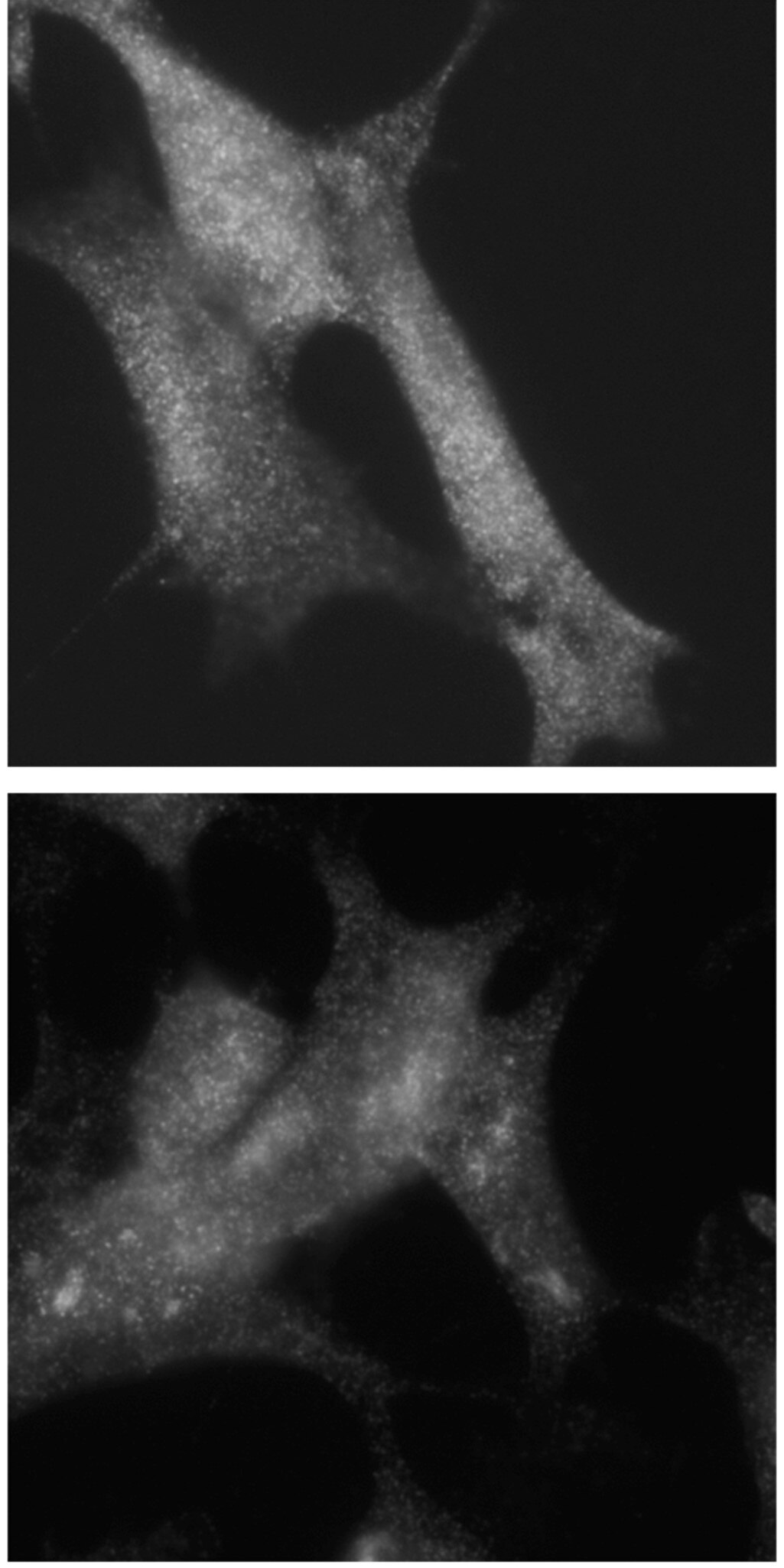 |
